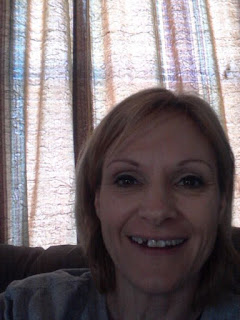Portable phototherapy blankets to reduce length of stays at hospital for jaundiced pre-term babies | News - Birmingham Women's and Children's NHS Foundation Trust
Our babies across our maternity services are sleeping in style with our glow-up warmth-generating Women's Hospital Charity funded portable 'Bili Blankets/ Cocoons'. Around 80 per cent of pre-term babies will go on to develop jaundice, a discoloration of the skin and yellowing of the eyes. 
Jaundice is a result of the breakdown of red blood cells which is a normal process after birth and can be treated fairly quickly for newborn babies – however jaundice is more common for babies born prematurely, and this can increase the length of time spent at hospital.
To aid recovery for our 'preemie' babies, we have been using portable phototherapy blankets to keep them warm and treat neonatal jaundice, also known as hyperbilirubinemia, coining the name 'biliblanket'. Due to the portability of the blankets, they can also be used at home so that our babies can be looked after at home and develop those important bonds with their parents or carers outside of the hospital environment, and also preventing readmissions into hospital. 
The phototherapy technology also makes it easier for our new mums to breast feed their little ones, so that they can have the choice in their breastfeeding journey.
Our blankets and cocoons are used by various teams across our neonatal services, including our Neonatal Community Outreach Team (NCOT), our Neonatal Advice and Triage Services (NATS), our Transitional Care Team and our Neonatal Intensive Care Unit (NICU).

What is a biliblanket/bilicocoon?
A Biliblanket is essentially a glow up blanket that shines a full spectrum fiber-optic light at the baby's body to generate heat. We use special eye guards for our little ones to protect their eyes from the light. The phototherapy is not harmful to skin making them safe for our new born babies. The 'bili-lights' will reduce bilirubin levels after one to two days of usage and this will be discarded through stools and urination.
Bilirubin is a yellowish pigment caused by the breakdown of red blood cells which causes discoloration in jaundiced babies. Once the biliblanket has reduced jaundice in or pre-term babies, they are able to get back on the path to recovery and parents can even use biliblankets at home to move the recovery process outside of the hospital environment, reducing length of hospital stays.
Nicola Speakman, who is part of the NICU Governance Team and Lead for ATAIN said: "Our biliblankets and cocoons are a big part of our national Avoiding Term Admission In Neonatal Units (ATAIN) scheme, to keep our jaundiced babies on the road to recovery."
"We're also looking at bringing our blankets outside of our clinical environments into our Transitional Care team like NATS, so that we can begin keeping our parents and babies at home to form those important bonds in their early infant development. Our phototherapy technology also makes it easier for new mums to breastfeed, meaning that they are allowed the same breastfeeding experiences as other parents. It's all about keeping our families together."
We're so thankful to be able to support our patients, babies and families with new technology, set to increase the rates of recovery, reduce hospital stays and most important - keep our families together.
If you would like to support our efforts to implement more Bilicocoons into our hospitals, visit our Women's Hospital Charity page to donate.
To learn more about Transitional care, visit the Transitional Care page.

Comments
Post a Comment